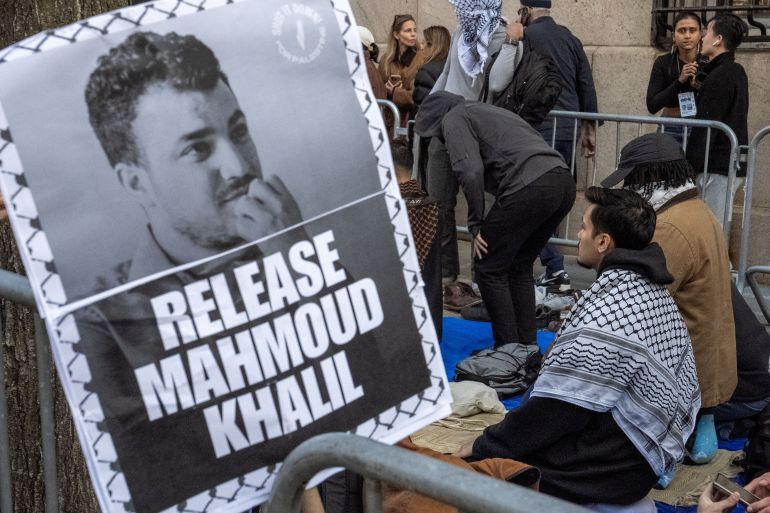Trump Administration Targets Dissent with Deportation Strategy: A Threat to American Democracy?
On April 11, an immigration judge in Louisiana ruled that Mahmoud Khalil, a former Columbia University graduate student and lawful United States permanent resident, could be deported – not for criminal activity or immigration violations, but for his political speech. This case exemplifies a broader strategy employed by the Trump administration to silence dissent within the US, particularly criticism of Israeli policies or support for Palestinian rights, using increasingly aggressive legal tools.
The core of Khalil’s case hinges on Section 237(a)(4)(C)(i) of the Immigration and Nationality Act – a Cold War-era provision that permits deportation based on a noncitizen’s potential ‘threat to U.S. foreign policy interests’. The government’s evidence, consisting primarily of a two-page memorandum from Secretary of State Marco Rubio asserting Khalil’s “beliefs and associations” could adversely affect US foreign policy, relied largely on assertions without concrete proof. Notably, the memo itself acknowledged that Khalil’s actions were otherwise lawful.
This approach – invoking ‘foreign policy concerns’ or ‘national security’ as justification for deportation – has become a recurring pattern. Legal scholars and human rights organizations argue it operates like a legal incantation, effectively overriding First Amendment protections and due process. Dozens of international students and scholars, many from Muslim-majority countries or racialized communities, have faced surveillance, detention, and deportation without allegations of criminal wrongdoing. Examples include Badar Khan Suri (arrested for organizing a Gaza solidarity encampment), Rumeysa Ozturk (denied release after co-authoring an opinion piece criticizing BDS), Mohsen Mahdawi (facing deportation to the occupied West Bank due to protest leadership), Momodou Taal (whose lawsuit against Trump’s executive orders was ultimately dismissed due to jurisdictional issues), Yunseo Chung, Alireza Doroudi and Ranjani Srinivasan.
The legal process used in these cases is particularly concerning: immigration courts operate within the Department of Justice, lacking independence from political oversight and procedural protections afforded by Article III federal courts. These tribunals often rely on vague assertions of ‘foreign policy’ or ‘national security,’ diminishing evidentiary standards and prioritizing executive branch discretion. The system has been repeatedly criticized for its lack of transparency and accountability.
Furthermore, the administration is exploring the possibility of denaturalization – revoking citizenship based on alleged fraud, membership in terrorist organizations, or other offenses. Trump’s creation of a dedicated ‘Denaturalization Section’ within the Department of Justice represents a significant escalation. The department has reportedly investigated over 700,000 immigrant files, seeking to revoke citizenship for approximately 1,600 individuals.
The campaign against dissent is fueled by organizations like Betar and Canary Mission, which have compiled lists of international students suspected of anti-Israel activism and allegedly submitted them to the government. This reliance on private groups raises serious concerns about transparency and potential bias. The US’s claim as a bastion of liberty and the rule of law is challenged by this strategy, potentially transforming freedom of speech into a conditional privilege.
Moving forward, calls for reform are mounting, including transferring immigration courts to an independent Article I court structure. Congressional action is urgently needed to ensure judicial impartiality, strengthen First Amendment protections for noncitizens, and promote transparency in government enforcement practices. The future of American democracy hinges on safeguarding the right to dissent.





Post Comment